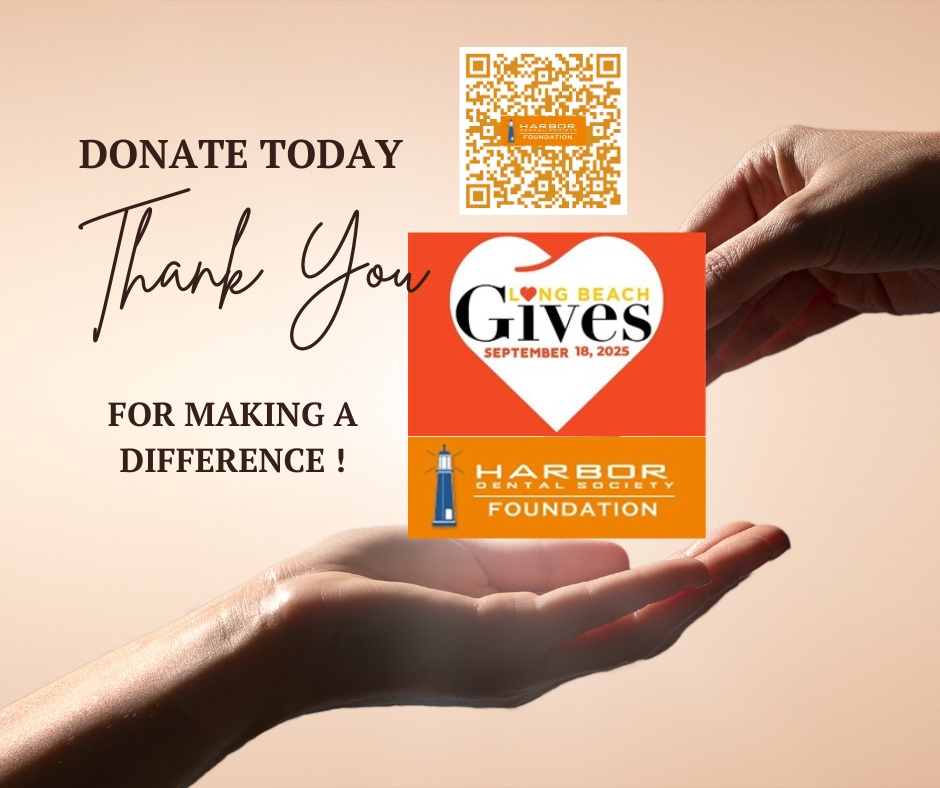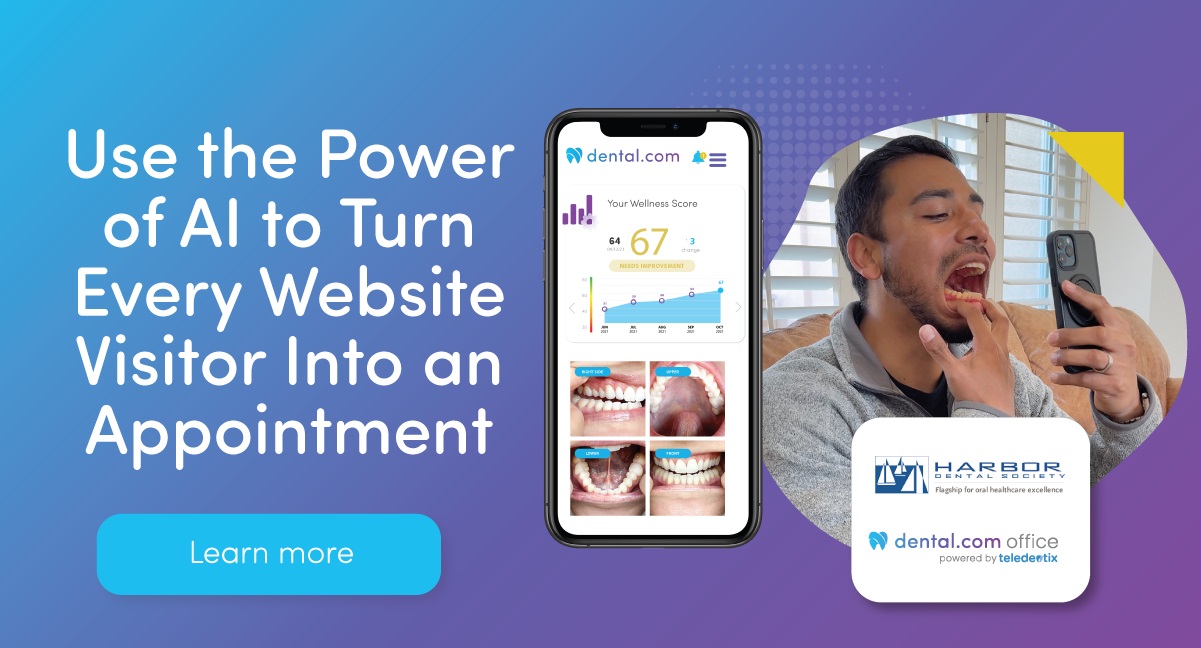Monday, Jun 10, 2024
Habitual Generosity: Why Giving More Can Mean Getting More for Driven Dental Entrepreneurs
Key Takeaways
-
When you add value to other people's lives, they likely feel obligated to respond in kind and be helpful to you in important ways, benefiting your dental practice and personal life.
-
Use a discovery process to get to know what your patients, staff, and colleagues value and what outcomes they're looking for---in dentistry and in life.
-
Adding value that helps you influence others can take as little as five minutes per day and can significantly impact your success as a dental entrepreneur.
Influence is all about getting other people to do what you want them to do---swaying them to act in ways that are beneficial to you and your dental practice. Needless to say, influence is a skill that can be very smart to cultivate for driven dental entrepreneurs. Exerting it well can be helpful to you in your professional environment as well as in your personal dealings with others (family, friends, "frenemies" and so on).
Indeed, in our experience, we find that the self-made Super Rich (people with a net worth of $500 million or more) are generally quite adept at exerting influence to achieve goals. The wealth, power and connections many of them have, often coupled with others' desire to curry their favor, can make the Super Rich quite influential. What's more, we see that their ability to influence others is a critical factor for many in creating their significant personal fortunes. Being influential in others' lives is, very often, extremely important to the outcomes the Super Rich achieve.
With that in mind, here's a look at how some of the Super Rich use influence to pursue their goals and wealth creation, and how driven dental entrepreneurs can apply these principles to their practices and personal lives.
The law of reciprocity
It's important to know that there are different ways to exert influence. Some are generally positive. For example, your position as a dentist and practice owner can give you the ability to influence---you can readily sway the people who report to or work for you. Your expertise in dentistry can also give you influence. For example, people are often willing to follow the recommendations of others they see as thought leaders---acknowledged experts in a particular area.
Influence can also be exerted by being duplicitous and conniving---Machiavellian actions rooted in narcissism. These approaches are usually very partisan and exploitative, however. Most people do not create long-term success using this approach.
So what do the Super Rich do? We find that, in general, they look to first add value to the lives of the people they want to influence. They start by seeking to give, not take.
By first adding value to the lives of other people, the self-made Super Rich are using a concept you might be familiar with: the law of reciprocity. When you receive gifts, favors, opportunities and the like, it's this "law" (which is more like a rule of thumb) that makes you feel obligated to respond in kind and be helpful to the people who delivered value to you. The law of reciprocity enhances the likelihood that other people will be more cooperative in ways that can boost your chances of achieving your goals. There's no guarantee, of course. That is the difference between control and influence.
One reason this adding-value approach is so powerful is that it's so transparent. It becomes an understanding along the lines of an informal agreement between the parties. There is no deception or conniving involved. Everything is in the open and explicit. It is very much about each person making a concerted effort to help the other one. This, in turn, creates a kind of social pressure to return a favor. Think about it: If someone goes out of their way for you, don't you feel obligated to say yes if they ask you for help down the road? You might even be motivated to do something helpful proactively, before the person expresses a need for assistance.
Important: Being influential by adding value is not the same thing as manipulation. By helping others achieve their goals and objectives---by making their professional or personal lives more successful---you are providing significant value to them. It therefore only makes sense for them to help you in return. And in their "paying back," they have been influenced by you.
Identifying and delivering value
In order to bring value to others in a quest to influence, it's important to first understand what the other person finds to be valuable. Among the self-made Super Rich, we find that they often engage in a process to discern value that features several key components (see Exhibit 3).
Their starting point of this process is making the other person the center of attention. One of the best ways we know to do that successfully is through the use of skilled discovery---that is, asking insightful questions and following up so you can, in essence, open the window into the worlds of other people.
For example, a good opening discovery question may be: "Why don't you tell me about your dental practice (or family or self)?" What's more, there are a plethora of questions that enable you to get greater insights. When an important piece of information is shared with you, it becomes easy (and very natural) to ask, "Can you tell me more about that?" and encourage the other person to go into much more detail. It's questions such as these that can start the discovery process moving and keep it going so you end up really knowing what the person values and what they may need that aligns with those values.
A few tips about discovery:
-
Discovery should be ongoing. People's lives are often in flux, and as their lives change, discovery supports your ongoing ability to identify new value opportunities, add value and influence others.
-
Discovery should be informed by empathy, as being empathetic in your questioning can help build a level of rapport that gets others to open up even more---about their hopes, dreams, fears and concerns.
-
Empathy is based on deep listening, which entails listening to what people mean *beyond* what they actually say, coupled with a feedback loop that lets you confirm your understanding and lets that person know you understand.
As you can probably see, influence is both explicit and open using this approach. You should come right out and say it if you can bring value to the other person involved. There's no need for hinting or subtlety. It should be an explicit informal agreement.
Once you are armed with accurate knowledge of what the other person is seeking to accomplish as well as the obstacles in their path, you can look to add value. Depending on the situation, you might:
-
Personally solve a problem they face.
-
Introduce them to someone who might be helpful.
-
Share expertise and experiences that they can use to solve their problems.
Note: There are several benefits to indirect forms of help, such as introducing a person to someone who can help them (if you're unable to). One of the most important is that it demonstrates that you are a "connector" with valuable relationship capital.
When you mitigate or eliminate other people's obstacles, you create a situation in which they want to be helpful to you. Moreover, you have your informal agreement of what they will now do for you. At that point, you have influence.
Keep it going
Once you've experienced this process of adding value and getting value in return, don't let it become a "one and done" moment. Instead, look for ways to be habitually generous.
Regularly giving your time, energy, advice and support helps you build and strengthen relationships in a wide variety of ways. This makes intuitive sense, of course, but we often hesitate to be generous because we fear our already limited time will be sucked away from us if we put ourselves out there for others too much.
But adding value doesn't have to mean grand gestures that take lots of time. For example, consider offering daily "five-minute favors"---things you can do every day to help people that take just a few minutes. Some examples include:
-
Share one interesting bit of dental knowledge with a patient or colleague.
-
Introduce two people you know who might benefit by knowing each other.
-
Point out a broken hyperlink or typo you notice on a person's website.
This is all easy stuff that won't eat away at your day. More important, when you act generously toward others, the law of reciprocity kicks in. Doing just one five-minute favor every day gets you into a pattern that may eventually lead to your having around you a community of people you can influence to benefit your dental practice and your life---and who are ready and eager to help you reach your goals.
For driven dental entrepreneurs, habitually adding value to the lives of your patients, staff, and colleagues can set you apart from the competition and create a loyal community that supports your success. By genuinely seeking to help others, you build influence that can help you achieve your professional and personal goals while making a positive impact on those around you.
In the dental industry, competition can be fierce, and building a successful practice requires more than just clinical expertise. By cultivating influence through habitual generosity, you can differentiate yourself and your practice, attract and retain patients, and foster a positive reputation in your community.
Start by identifying opportunities to add value to the lives of your patients, staff, and colleagues. This might involve offering personalized advice and support to patients, investing in the professional development of your team, or collaborating with other dental professionals to improve patient care. By consistently seeking ways to help others, you demonstrate your commitment to their well-being and success, which can inspire loyalty and reciprocity.
Remember, the goal is not to manipulate or exploit others for personal gain, but rather to build genuine, mutually beneficial relationships. When you approach influence from a place of authenticity and generosity, you create a powerful network of supporters who are invested in your success and willing to go the extra mile to help you achieve your goals.
As a driven dental entrepreneur, embracing the power of habitual generosity can be a game-changer for your practice and personal life. By consistently adding value to the lives of others, you not only build influence but also create a positive ripple effect that extends far beyond your immediate circle. So, start small, be consistent, and watch as your influence and success grow over time.
About the Author
Tim McNeely is known for helping dentists build true wealth so they can thrive no matter what life throws at them. Tim is the host of the top-rated Dental Wealth Nation Show, author of the #1 best-selling book, Dental Wealth Nation, and is madly in love with his wife, who just happens to be a dentist. You can connect with Tim at www.dentalwealthnation.com or reach him at 818-534-4949.







